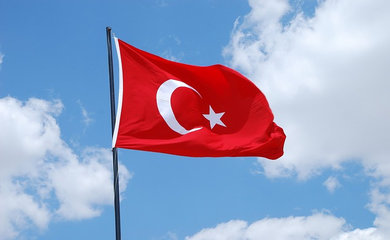It’s been 25-years since the first, technically legal pro-Kurdish political party in Turkey, the People’s Labour Party (HEP), was formed. The party was banned in the summer of 1993 due to its open promulgation of cultural and political rights for Turkey’s Kurds; a similar pro-Kurdish party called the Democracy Party (DEP) emerged around the same time but was also banned in the summer of 1994 for promoting Kurdish nationalism. At the time it was accused of having close ties with the outlawed Kurdistan Workers Party (PKK) for seeking the same rights as that group had been fighting for. However, unlike the PKK, the HEP saw diplomacy as the best way to forward the rights of Turkey’s marginalized and repressed Kurds.
Flash forward a quarter-century to the present and we have yet another left-wing Kurdish party–the Peoples’ Democratic Party (HDP). Like the HEP before it the HDP sees parliament as the best way to forward the interests of Kurds. Less than three-years-old, the party managed achieve quite a bit. It garnered enough support of the Turkish electorate to break the 10% threshold to enter parliament last June by getting approximately 13% of the vote. This infuriated Turkey’s President Recep Tayyip Erdogan who had sought to get his Justice and Development party (AKP) an overwhelming majority of seats in parliament in order to forward his referendum on replacing the parliamentary system with a much more autocratic presidential system. That coupled with his parties refusal to enter into a coalition resulted in a hung parliament in Turkey until the recent snap election of November 1st.
Since then the war against the PKK has once again been reignited and Erdogan and the AKP have sought to directly conflate the HDP with the PKK. Even when a peace rally of HDP supporters were blown-up in a massive suicide-bombing attack in the center of Ankara last month, in the largest terror bombing in Turkey’s history, Erdogan had quite a bizarre theory about who was behind it. He claimed it was the Syrian regime, the PKK and ISIS (both sworn enemies who have been fighting each other for well over a year) all working together. Despite having no proof to support his theory it was evident that Erdogan wanted to, at least partially, implicate the PKK, whom he has been mono-manically focusing on destroying, in that bombing despite the striking fact he has repeatedly claimed that the HDP and the PKK are closely linked.
The November 1st snap election has since come and gone the HDP made it by the 10% threshold to have representation in parliament once again, but only by the skin of their teeth and once again thanks to mostly Kurdish voters in the southeast. It seems Erdogan’s ploy to get Turkish voters to reconsider their support of the pro-Kurdish party has, for the most part, succeeded. Most HDP votes came from Turkey’s Kurdish-majority southeast and they barely got a pro-Kurdish party in parliament. Ponder that simple fact for just a moment: Turkey’s Kurds were very nearly left with, once again, absolutely no parliamentary representation while at the same time having to endure tough, and often very violent and terrifying, crackdowns in their communities by the Turkish military and police. Such events are doubtfully going to inspire a feeling of inclusivity among those in that long sidelined and trod upon minority community.
The AKP got enough votes to govern as a single party once again as it had been accustomed to for over a decade now. Erdogan has essentially shelved his plans for a presidential system – which was quite unpopular among voters and which the AKP once again failed to get enough seats to forward a referendum over – but his party is nevertheless still relatively unconstrained when it comes to continuing its war against the PKK along with its war of words against the HDP, whose presence in parliament they are bitterly opposed to. And that’s the dangerous thing.
As with the HEP precedent it conveys the wrong message to Turkey’s Kurdish population. If the Kurds are shown time and again that their efforts of becoming equal citizens in a democratic Turkish state will always be in vain and consequently conclude that the powers that be would invariably rather forcibly subdue their legitimate political aspirations than work with them then of course support for the PKK, along with more general desires for separatism and/or autonomy, is more likely to increase than to decline. If the Kurds felt they played an equal role in an inclusive society then the PKK would more likely than not be little more than a fringe reactionary cult organization which the Turkish state could have successfully dismantled years ago with the help of their Kurdish compatriots. Instead the actions of this government is, in essence, pouring petrol on a fire that could well have, with cooperation and concordance between Turks and Kurds, been thoroughly extinguished mere months ago.

